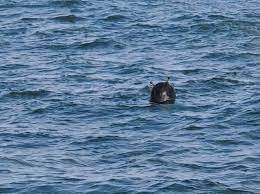NATO allies Turkey, Romania, and Bulgaria entered into an agreement on January 11 to address the escalating threat of drifting mines in the Black Sea, a danger that has increased since the initiation of Russia’s war in Ukraine. This pact establishes a collaborative Mine Countermeasures Task Group, an alliance that aims to tackle the menace posed by these mines to maritime activities in the region. The agreement was formalized during a meeting in Istanbul, where Turkish Defence Minister Yasar Guler, Romanian Defence Minister Angel Tilvar, and Bulgarian Deputy Defence Minister Atanas Zapryanov signed the accord.

Collaborative Response to Black Sea Mine Threats by the NATO allies
The primary focus of this collaborative effort is to neutralize and clear mines that have become a significant hazard to shipping in the Black Sea. The mines, which have been a particular threat since the onset of Russia’s war in Ukraine, endanger critical infrastructure such as ports and communication networks. Notably, the Black Sea has witnessed incidents involving commercial ships, including a bulk carrier heading to a Danube River port for loading grain in December.
To implement the initiative effectively, each participating country will contribute three minehunting ships, in addition to one command-control ship. This collective effort underscores the commitment of Turkey, Romania, and Bulgaria to making shipping safer in the Black Sea and mitigating the impact on crucial economic activities, including Ukraine’s grain exports.

The agreement is exclusive to the three NATO allies initially, and a committee of naval commanders from these countries will oversee the operation. However, there is a possibility of expanding the initiative to include other Black Sea states once the conflict subsides. The move reflects a regional response to the broader geopolitical challenges posed by Russia’s actions in the Black Sea.
Geopolitical Complexities and Recent Tensions
Recent tensions have also emerged as Turkey refused transit to two minehunter vessels donated by Britain to Ukraine, citing concerns about violating the 1936 Montreux Convention. This international pact governs the wartime passage through the Bosphorus and Dardanelles straits. These geopolitical complexities underscore the delicate balance between regional security initiatives and the larger international agreements.

In addition to the immediate regional concerns, Russia and Ukraine have engaged in a blame game regarding stray mines washing up along Black Sea coasts. The collaborative effort among the NATO allies, Turkey, Romania, and Bulgaria signifies a proactive response within NATO to address a specific security challenge in the Black Sea, reflecting the alliance’s commitment to regional stability and security.










